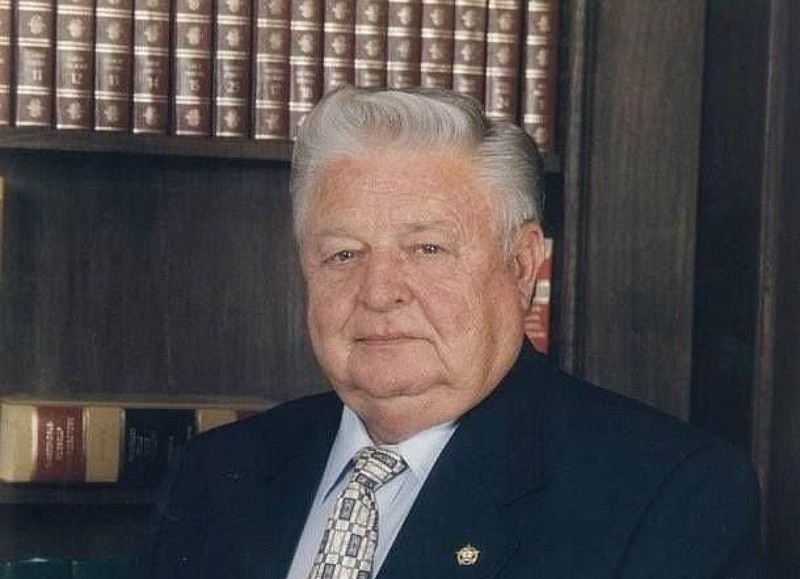Compassionate. Thorough. Serious. But not above having a little fun on the job.
Those were some of the descriptions of Havis Hester, the longtime Jefferson County coroner, that were offered by his friends and co-workers.
Hester died Thursday at the age of 90.
From an early age, Hester knew he wanted to help people. He grew up poor in south Arkansas and left home at age 16 to look for work, eventually getting a job as an orderly at Davis Hospital, where he lived briefly.
From 1952 until 1970, he worked with county coroner Frank Reed, and after that lengthy period of on-the-job training, it was no surprise that Hester ran for the coroner's position and, being unopposed, gained the position with ease.
As his obituary explains, because of financial reasons Hester never went to medical school, but he pushed the boundaries of the coroner's position, being named a deputy medical examiner for the state. He would go on to teach first responders, receive forensic training at the FBI Academy and was appointed deputy sheriff.
According to his associates, Hester was just as serious on a day-to-day level as he was with his overall career.
Lloyd Holcomb Sr., a co-owner of Henson-Holcomb Mortuary, worked with Hester as one of the coroner's first deputies, and recalls that his boss was all business when duty called.
"We went out on a call, and it was cold," Holcomb said. "A man had been found dead outside. We were getting started on processing the scene and a city police officer said, 'He's dead, Havis, let's just take him in.' Havis looked at the officer and said, 'What's your badge number? I'm going to talk to your supervisor. This is a human being and we need to find out what happened to him.' I always admired him. He always reminded me of Quincy. I really enjoyed working with him."
Holcomb also remembered Hester as someone who was always ready to help wherever he could.
"He had a tractor, and he came out there off Highway 79 where we wanted an office and pushed over the trees so we could start clearing the property," Holcomb said. "He was a working man."
White Hall Mayor Noel Foster also worked with Hester when Foster was on patrol with the Jefferson County sheriff's office and then when Foster was in the office's Criminal Investigation Division. He said Hester was highly respected because he brought a lot of expertise to a crime scene.
"If it was a suspicious death, he could quickly determine the time of death because he was that good," Foster said. "That helped the investigators out tremendously."
Hester was also a kind soul, Foster said.
"He was so compassionate," he said. "He was very respectful of the family and what they were going through. I don't know anyone that didn't like Havis Hester."
Foster said he always felt that the coroner's job was thankless in many ways, but that Hester and his deputies found satisfaction in the quality they brought to the work.
"That job is a calling," Foster said, "but they found joy in it because they were helpful to the people who had lost loved ones."
Foster, too, brought up the comparison between Hester and the TV character Quincy, who played a detail-oriented medical examiner on the TV show that aired in the late 1970s and early 1980s.
"I called him Quincy because he was always so respectful of people of all ages, so compassionate to people," Foster said.
County Judge Gerald Robinson worked with Hester across much of Robinson's 36-year career, with most of that time coming when Robinson worked in the sheriff's office or was leading the department as sheriff.
Robinson also recalled Hester as compassionate.
"He was very sensitive to the needs of the family," Robinson said.
"He was serious about his work and very helpful to other departments. He could tell you a lot about what happened to a person and when. He was also a constant teacher and was always giving you a life lesson. He'd talk about rigor mortis and when exactly someone died, and I'd think, 'This rascal really knows what he's doing.'"
Hester also had a playful side, Robinson said.
"Occasionally, we'd have to go out on a case where someone had been dead for a while and there was considerable decomposition," Robinson recalled. "Havis knew which ones of us were the most queasy and he'd prod and push to get those particular ones right up there in the middle of helping him gather the remains. One of the deputies was particularly sensitive and Havis would always holler for him to come help him. It was funny because we knew Havis was just messing with our heads."
Hester retired in 1998 after serving as coroner for 28 years.
Funeral arrangements are being handled by Ralph Robinson and Son.

